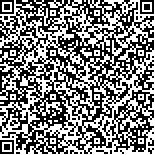本文已被:浏览 473次 下载 97次
投稿时间:2023-08-17 网络发布日期:2024-11-20
投稿时间:2023-08-17 网络发布日期:2024-11-20
中文摘要: 目的 通过系统分析的方法评价中西医结合防治缺血性脑血管病(ICVD)支架术后支架内再狭窄(ISR)的临床疗效。方法 检索PubMed、Cochrane Library、EMbase、中国知网、万方、维普资讯网数据库,时间为自建库至2023年7月,使用Cochrane偏倚风险评估工具对纳入的文献进行质量评价,采用RevMan 5.4软件进行Meta分析。结果 初筛共检索中英文文献443篇,最终纳入临床随机对照试验(RCTs)中文文献19篇,病例总数1 399例。与对照组相比,中西医结合干预组ICVD支架术后ISR发生率(OR=0.37, 95%CI: 0.27~0.49, Z=6.65,P<0.01)及术后脑缺血事件复发率(OR=0.29, 95%CI: 0.15~0.58,Z=3.56, P<0.01)更低,治疗后纤维蛋白、血浆黏度及血栓素A2水平更低、前列腺素I2更高,血瘀证和气虚血瘀证证候积分以及美国国立卫生研究院卒中量表(NIHSS)评分更低(P<0.05)。两种治疗方法不良反应发生情况差异无统计学意义(OR=0.74,95%CI: 0.39~1.43, Z=0.88, P=0.38)。结论 在ICVD支架术后ISR防治上,中西医结合治疗具有优势,可以降低ISR的发生率及脑缺血事件复发率,改善血流动力学、中医证候和神经功能缺损,一定程度改善预后,有待更多高质量的RCTs验证。
Abstract:Objective To evaluate the clinical efficacy of in-stent restenosis (ISR) after stenting of ischemic cerebrovascular disease (ICVD) by means of systematic analysis. Methods PubMed, Cochrane Library, EMbase, CNKI, Wanfang Data, and VIP database were searched from database establishment to July 2023. Cochrane bias risk assessment tool was used to evaluate the quality of the included literatures. Meta-analysis was performed using RevMan 5.4 software. Results A total of 443 Chinese and English literatures were initially searched, and 19 Chinese literatures of randomized controlled clinical trials (RCTs) were finally included, with a total of 1 399 cases. Compared with control group, the intervention group of integrated Chinese and Western medicine had a lower incidence of ISR after ICVD stenting(OR=0.37, 95%CI: 0.27-0.49, Z=6.65, P<0.01), a lower recurrence rate of postoperative cerebral ischemia events(OR=0.29, 95%CI: 0.15-0.58, Z=3.56, P<0.01), a lower level of fibrin and plasma viscosity thromboxen A2 (TXA2), and a higher level of prostaglandin I2 (PGI2), and lower blood stasis syndrome, Qi deficiency and blood stasis syndrome score and NIHSS score (P<0.05). There was no statistically significant difference in the incidence of adverse reactions between the two treatment methods (OR=0.74, 95%CI: 0.39-1.43, Z=0.88,P=0.38). Conclusion In the prevention and treatment of ISR after ICVD stenting, integrated Chinese and western medicine has advantages, which can reduce the incidence of ISR and the recurrence rate of cerebral ischemia events, improve hemodynamics, Chinese medicine syndrome, and neurological function defect, and improve prognosis to a certain extent, which needs to be verified by more high-quality RCTs.
keywords: Ischemic cerebrovascular disease Stenting Restenosis Meta-analysis Blood stasis syndrome Thromboxen A2 Prostaglandin Ⅰ2
文章编号: 中图分类号: 文献标志码:B
基金项目:国家中医药管理局国家中医临床基地业务建设科研专项(JDZX2015043);北京中医药大学基本科研业务重点攻关项目(2020-JYB-ZDGG-129)
相关附件: 附表1.pdf 附图1、图2.pdf
引用文本:
李蕊萍,赵聪,李文京,等.中西医结合防治缺血性脑血管病支架术后再狭窄的Meta分析[J].中国临床研究,2024,37(11):1758-1764.
李蕊萍,赵聪,李文京,等.中西医结合防治缺血性脑血管病支架术后再狭窄的Meta分析[J].中国临床研究,2024,37(11):1758-1764.
